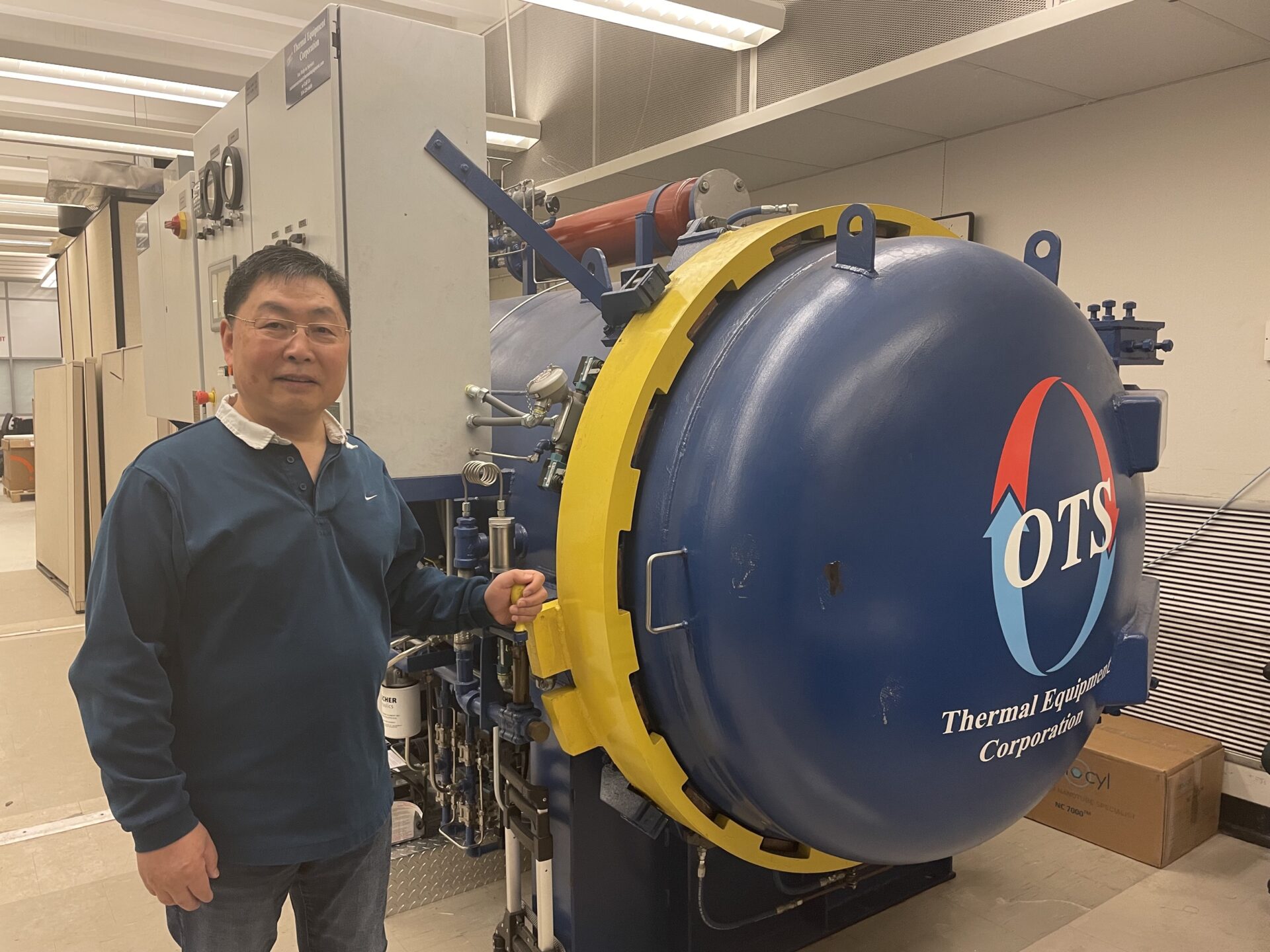Researcher Spotlight: Professor George Zhu shoots for the stars with pioneering space research
Tags:

Get to know the bright minds shaping our world. Our ‘Researcher Spotlight’ series celebrates the trailblazing researchers at the Lassonde School of Engineering, diving into their journeys and innovations.
—
Mechanical Engineering Professor, George Zhu, is a world-class leader in space research. His work has been supported by many prestigious funding sources like the Canadian Foundation for Innovation (CFI), New Frontiers in Research Fund (NFRF), Natural Sciences and Engineering Research Council of Canada (NSERC) and the Canadian Space Agency (CSA).
“My work focuses on every part of space,” says Professor Zhu. “I find the subject fascinating because there are so many unknowns to explore and discover.”
Though he is now an impactful researcher, Professor Zhu’s journey to the world of academic research was fraught with challenges. It was through unwavering dedication, persistence and steadfast support from Lassonde that he navigated this path to success. “I worked in industry as an aerospace engineer for 11 years but decided to transition to academia to gain more freedom with my research,” says Professor Zhu. “This was very difficult because my skills were specific to industry, and I didn’t have much experience in academia. York and Lassonde took a chance on me and provided many growth and leadership opportunities. I also received advice, mentorship and support from my colleagues at Lassonde.”


Ground Experiment System of free-floating robots for identifying, tracking, and capturing space debris
“One of the best pieces of advice I received was, ‘Don’t focus on working quickly to get things done; be original and innovative,’” he says. “I remained persistent, no matter what. I set a goal and continued to work towards it – and now, my efforts have paid off.”
Currently, Professor Zhu is leading many monumental projects, exploring revolutionary ideas and groundbreaking innovations.
In a project funded by CFI and NFRF, he is exploring ways to make access to space more cost-effective by fabricating spacecraft and other structures in space using 3D printing (additive manufacturing). To investigate the feasibility of this idea, Professor Zhu and other Mechanical Engineering faculty members at Lassonde are conducting multi-physics modeling to understand 3D printing processes in space conditions, namely zero-gravity and vacuum. Experiments include 3D printing in a horizontal orientation while inside a large vacuum chamber to mimic zero-gravity conditions in outer space.
Through substantial funding, Professor Zhu secured some of the best equipment in Canada to support this work, including an enormous vacuum chamber and robotic, laser metal-wire deposition 3D printer.
By 3D printing structures in space, bulky equipment and spare parts that are typically carried during launch can be manufactured in-situ and as-needed, thereby reducing material waste, cost and labour. This project also has the potential to reduce overcrowding in space, by recycling space debris to craft new tools, spacecraft and other supplies.
Among his many curiosity-driven projects, Professor Zhu is investigating the development of space elevators for planet-space transportation. Gaining attention internationally, he is also working on new swarm intelligence to improve space debris removal, using a swarm of small satellites that work together like an army of ants.


Left: Professor Zhu with robotic vehicles used to mimic small, swarm satellites. Right: Professor Zhu standing in front of a fused deposition modeling 3D printer.
Professor Zhu’s research contributions and pioneering efforts have awarded him global recognition in his field. He has also received many distinguished titles such as Fellow of Canadian Academy of Engineering and American Society of Mechanical Engineers, Associate Fellow of American Institute of Aeronautics and Astronautics, and member of International Academy of Astronautics. Among his awards, he recently received the 2024 Solid Mechanics Medal from the Canadian Society for Mechanical Engineering.
“I pursued engineering in Canada so I could be at the forefront of scientific innovation; we are working on many projects that are advancing space research on national and international levels,” says Professor Zhu. “I am extremely appreciative of the support I have received from Lassonde. No matter what department I work with, it is an environment of positivity and teamwork. By working together, we have achieved so much more than any single person ever could.”